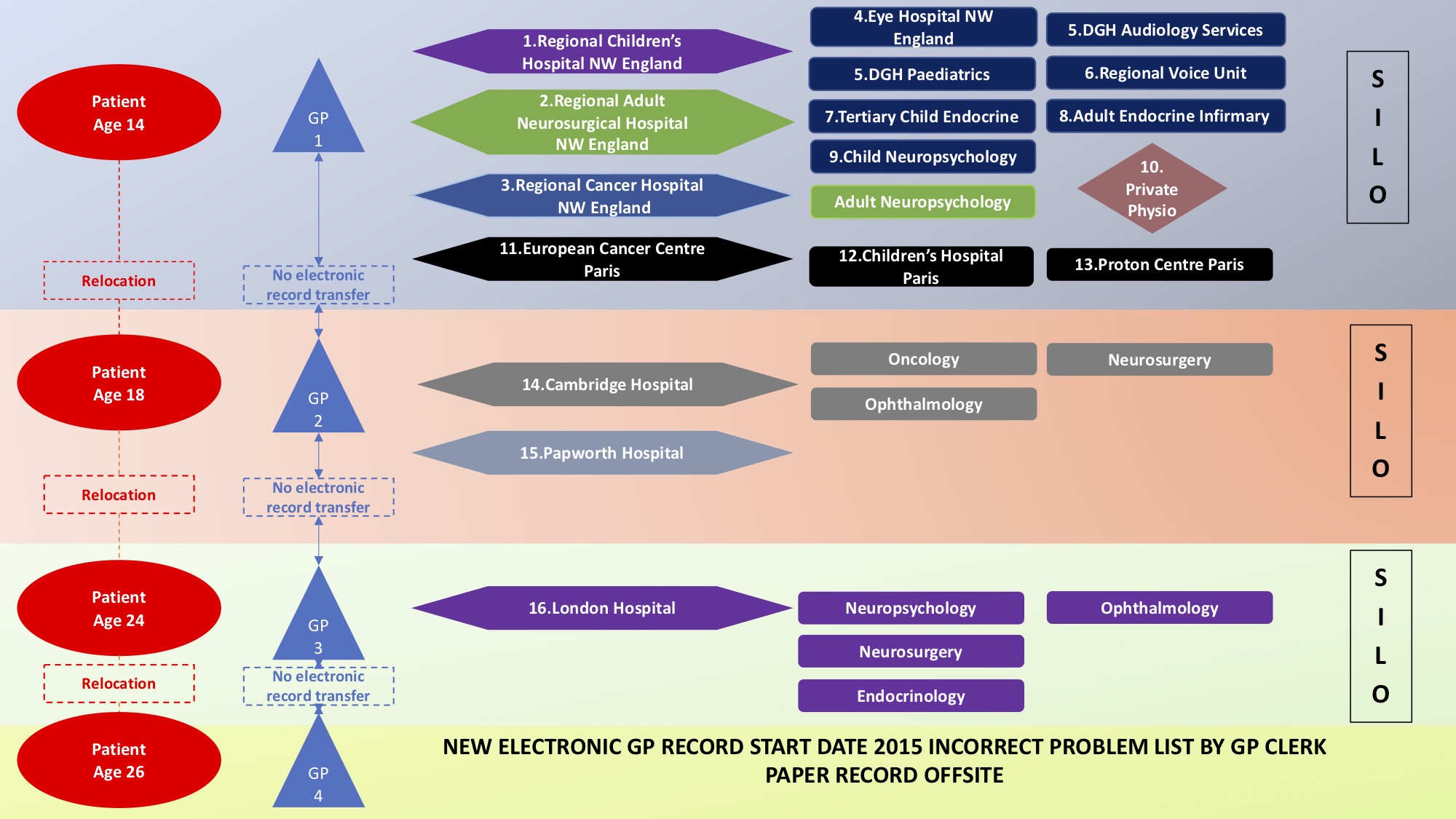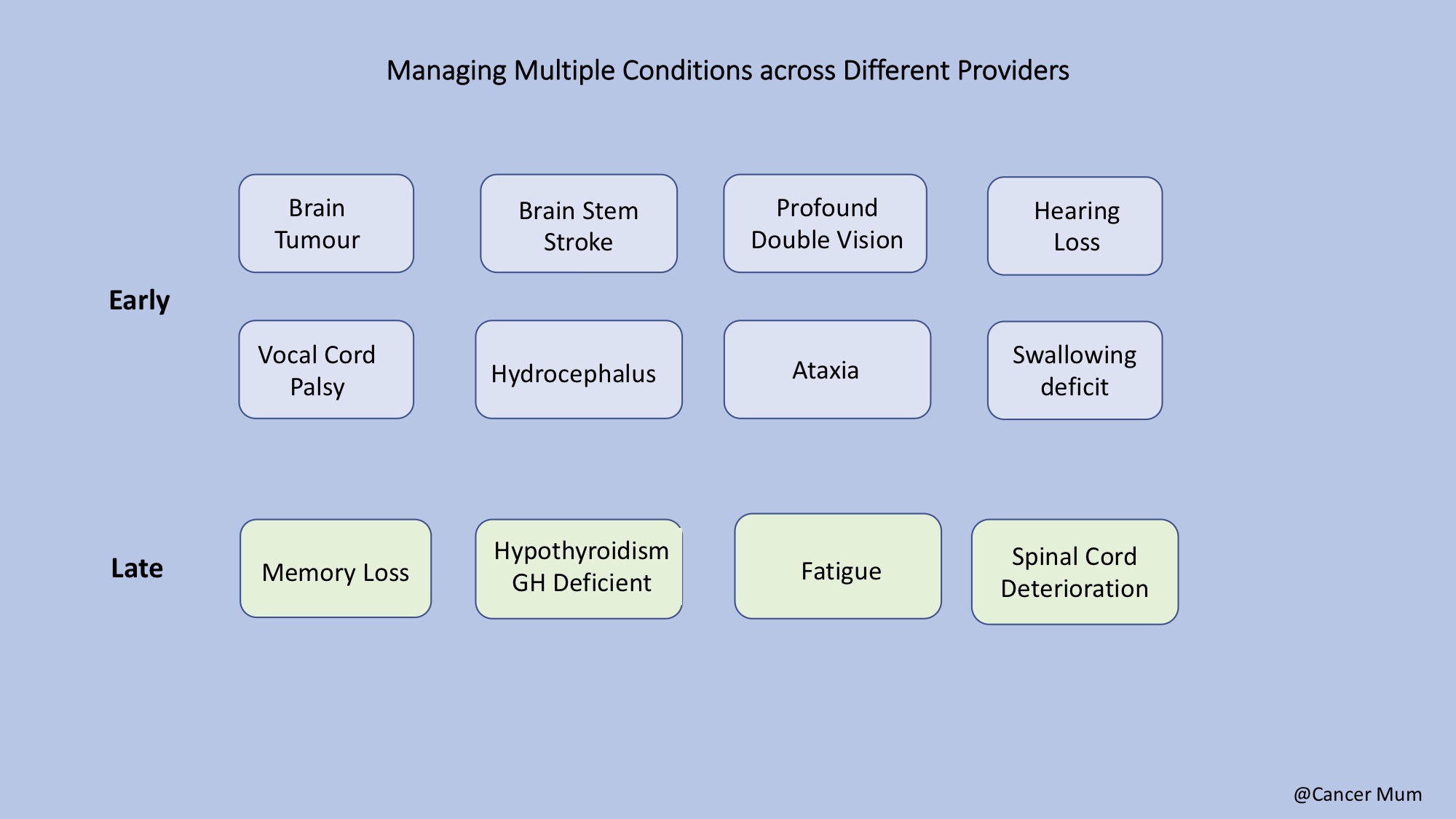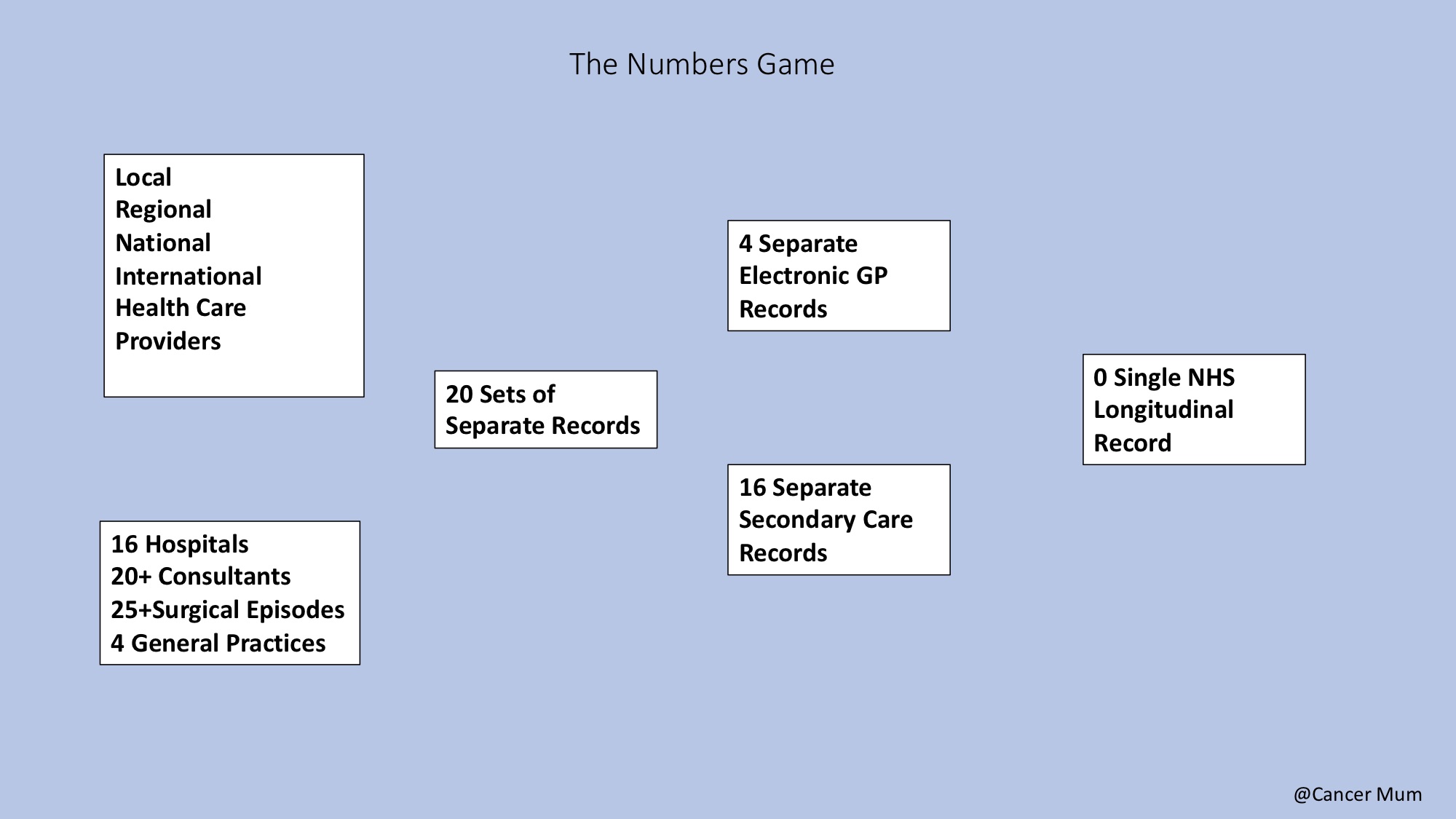by Cancer Mum
So finally, here it is, news from the front line in my first @Cancer Mum blog. For those who follow me on Twitter you will already know my Tweets about patient record access are passionate, angry, frustrated, impatient, relentless and some have said simplistic. There are many commentators on the subject and it is a topic that attracts comments from around the world. It’s hard to explain the real message in a few words on social media but there is a message to be told and it must be heard.
So why is medical record access so important to people like me, why do we fight so vociferously and challenge the system?
Our story started in 2005 when our healthy fourteen-year-old teenager was suddenly diagnosed with a rare brain tumour. It was large, growing from the pituitary fossa backwards compressing his brain stem and descending down into his cervical canal. Surgery to debunk the tumour left us with a teenager with multiple disabilities due to a brain stem stroke and a poor prognosis tumour. Over the years an unbelievable number of care providers have touched us on the worst journey a family could imagine. The last fifteen years have been a roller coaster and secondary care has been a constant feature in our son’s life creating a significant amount of information. As my son’s main carer I have managed all his medical care from the first year when it became clear that the provision was split across many providers and only our family knew the overall picture in a complicated jigsaw of care.
My interest in collating an accessible online health account began as I approached a milestone birthday. Like most parents who care for a child whose life is compromised by ill health or disability I started to look to the future. As parents we will not always be here to manage his care with our vast knowledge of events. So, there were questions.
- Who would take over the complicated management?
- Who knew all the details accumulated over the years?
- How complete was his medical record?
- Does he have a medical record?
- Where is his medical record?
- Could we create a fully shareable online health account that would ensure safe care in the future?
So, the journey of discovery began. My starting point was application for full access to my son’s GP record. My concern at this point was to ensure that all the paper information our family had in many files was available in the GP record. The application for full online record access met with outright rejection and it was there my fight started. A statement was issued by the practice stating that it was not mandatory to share free text or historical letters and this would not change until they were required to do so.
Almost a year later, during a visit to the practice by a RCGP Digital Champion on our behalf, it became clear that there was no electronic GP record. I had been fighting for information that didn’t exist. I had been unaware that my son’s electronic records had not followed him, unaware paper records were stored off site, unaware that no significant documents had been scanned into the new electronic record, unaware that a clerk had created an incorrect summary list, unaware that access to any historical letters and consultation text would continue to be refused. Transparency and partnership working were not on the agenda. After this visit a large amount of documentation from the paper record was scanned onto the new electronic record at the request of the visiting GP.
Further investigation revealed that transfer of all GP records has been patchy for a number of years. There is a short transfer window for the GP2GP transfer process and if the patient record is not called within the timeframe the file is locked and cannot be retrieved at a later date.
This is an important point as the failure to transfer GP electronic records when patients relocate has a significant effect on information flow and creates silos of information in the chain.
Further investigation showed an unexpected reality, my son’s data set is summarised in the flow chart below

The following table illustrates the multiple conditions that needed continuing care across the years. The lack of information at each new point of care required repeated explanations of a long and complex history by the family. Inevitably with the vast number of health interactions over a fourteen year period our memory of the details of separate events became increasing blurred.

Our son’s health record in numbers.

At the end of December 2017 following the failure of the RCGP Digital Champion to secure full access to the free text and historical letters in my son’s online GP record I decided to issue notice to the practice that I would take formal action using the Equalities Act 2010. I requested ‘reasonable adjustments’ to be made to mitigate for hearing impairment and severe memory deficit. The Practice agreed to facilitate full record access after a partner meeting. My son remains the only patient in a 40,000 group practice list to have this access.
After a period of six weeks in May last our son became ill quite suddenly. There was clear indication that his neurological status had changed. He was admitted in severe pain to a major neurological centre through the Accident and Emergency Department. He was seen by the neurosurgical team who had not met him before and there was no medical record of the complex surgery and conditions in the flow charts above. The impaired neurological picture indicated a cervical spinal cord issue. Words cannot adequately explain our terror as parents at this point.
We tried to answer as many questions as we could but the stress made it difficult. We were unable to name the French Hospitals or remember the details of the previous cervical spine laminectomies. Then we remembered the new online GP account and accessed it through an App on a phone. To our shock there were hundreds of document and consultation entries but they were not indexed and useless. I have talked about this here
Our son went on to have urgent brain and spinal surgery and he has since recovered well. It is a situation I would not wish on any family. We learnt from our experience and now we have a fully indexed longitudinal patient record created using the Evergreen Life App. I have transferred all relevant documents over the last fourteen years and the account is fully shareable by all member of our family.
Stop, Look and Listen
Despite continued promises of access to all our health information by successive politicians and the talk of new gateways to our health information linking primary, secondary and social care, to people like us it seems as far away as ever. We hear about the Empowering the Person initiative, projects to improve data flows, data standards and all those new Apps but citizens like us are still as helpless as ever standing next to that stretcher in A/E without the very basic information to save our loved one’s life in a crisis.
The announcement today of the new London SCRa mobile which allows ambulance staff to access records for front line care is good news. So much good work is coming from NHS Digital but how effective will this be if the Summary Care Record information is extracted from inaccurate and incomplete patient records? My son’s allergies have been missed in the paper muddle. Is the risk of sudden intracranial bleed noted? Do we need to stop and look at the basics?
Is anyone listening? Despite years of campaigning for full GP record access by clinicians and patients alike the new five-year GMS contract only mandated full patient access to prospective records. The choice to release historical free data remains the choice of individual GP practices. What use is that to patients with complex histories? How can they manage their care? That door is closed for the next five years.
I have recently become involved with the procurement evaluation stage of our Local Health and Care Record. Patients are not considered stakeholders. There has been no citizen engagement prior to specification. The specification has been put together by the professional users with no thought to what we might need or want. The patient portal is parked in the future. Access to a full longitudinal NHS record is another five years away in reality. Another door closed for five years.
These developments have caused our family great concern and frustration. We just want to keep our son safe.
We are being let down.
The sound of doors slamming shut is deafening.
